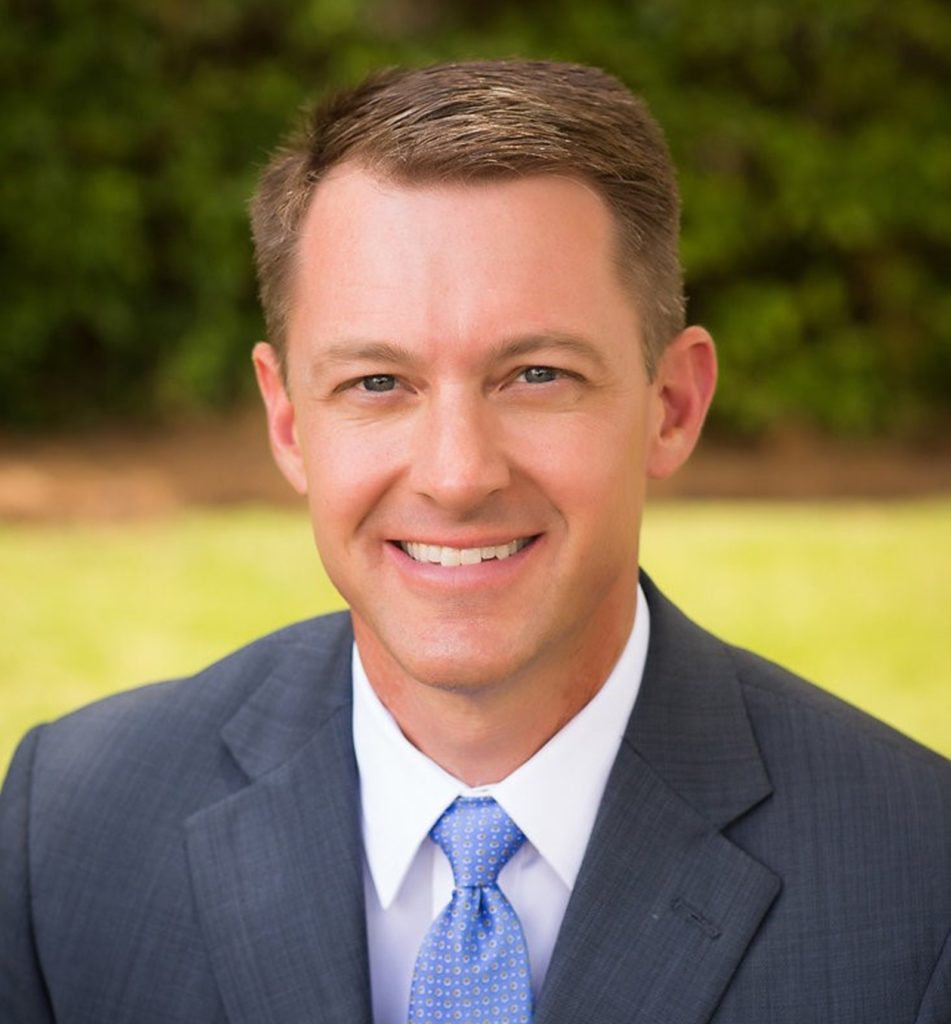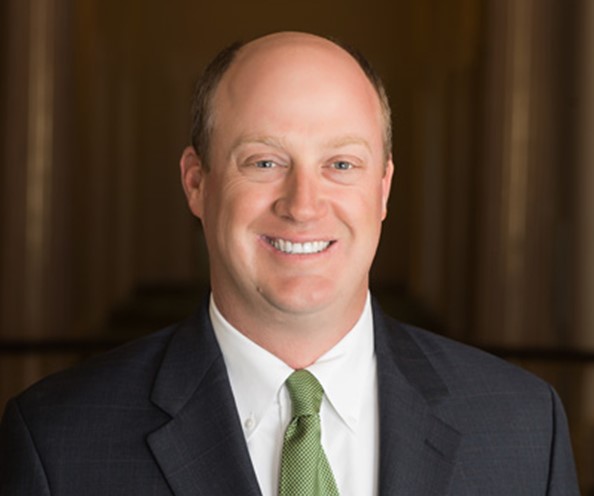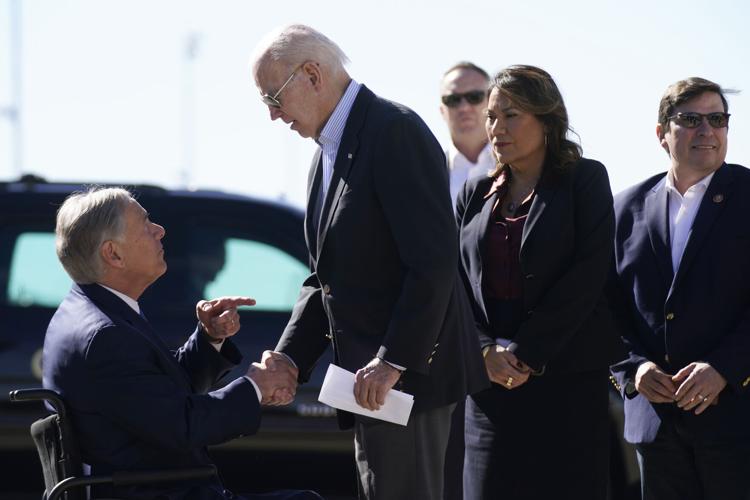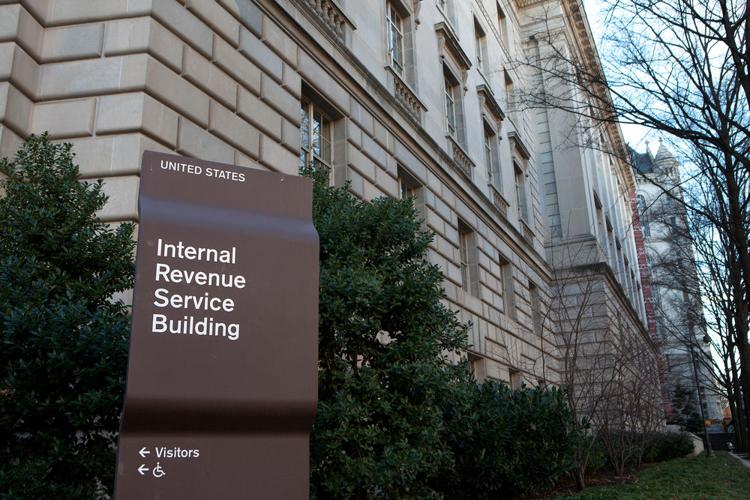Catholic Church experiencing sudden surge in seminarians

For decades the Catholic Church has suffered from a decline in young men seeking a life in the priesthood. For Alabama, at least, that may be on the verge of changing. In June, the Diocese of Birmingham ordained Father Daniel Sessions of Shelby County at historic St. Paul’s Cathedral in Birmingham. Father Sessions celebrated his first mass as a priest at St. Mark the Evangelist Catholic Church in Birmingham, his home parish. Sessions is now assigned to Holy Spirit Catholic Church in Decatur. The Benedictine Monastery in Cullman ordained two monks to the priesthood last month. Far from being an anomaly, Sessions’ experience may be a developing trend. As August and the start of the next semester of school begins, the Diocese of Birmingham reports that it has 19 young men in formation for the priesthood. South Alabama and the Archdiocese of Mobile report that it has another 15 seminarians that will be enrolled in the seminary this fall. 19 is the record high for Birmingham, which encompassed the northern half of the state, and the unexpected success in vocations has caught Catholic leaders by surprise – so much so that Bishop Steven J. Raica of the Diocese of Birmingham released a letter on July 17 that was shared to all parishes in the Diocese, asking the faithful to step up financially and partner with the Diocese in paying for the education of these seminarians. “This fall, the Diocese of Birmingham will be blessed to have 19 men in formation for the priesthood,” Bishop Raica wrote. “Between 2025 and 2028, we will be on track to ordain 11 men to the priesthood of our diocese.” “To meet the blessing the Lord has provided us presents a new challenge that will require a financial investment that will strain our current seminarian funds,” Raica said. “At present, the greater share of funding for seminarian formation comes from the Seminarian Education Fund, formerly known as the Burse Club. Along with some assistance from grants and our annual Catholic Charities and Communities Appeal, the Seminarian Education Fund also receives gifts, bequests, and general donations from parishes and parishioners to augment the funding of seminarian formation.” Bishop Raica is calling for a special collection from Alabamians to meet this unexpected need. “This Fall, we will need to boost that fund more than ever,” Bishop Raica continued. “After consultation with the Finance Office and the Presbyteral Council, I am authorizing a second collection for the Seminarian Education Fund. Therefore, I am urging parishes to take up this appeal to aid this Fund for this coming year on the weekend of August 5 – 6, 2023.” The Archdiocese of Mobile is similarly seeking to raise $9 million for its Seminarian Formation fund. “By the grace of God, many men are answering the call to discern the priesthood, and the Archdiocese of Mobile is producing vocations,” the Diocese wrote. “The Lord has blessed us with more and more worthy “homegrown” men from right here in Central and Southern Alabama. These ordinary men are extraordinary in their steadfast decision to be men of faith.” To connect with the author of this story or to comment, email brandonmreporter@gmail.com
Katie Britt votes in favor of funding bill that includes funding for Alabama projects

U.S. Senator Katie Britt, in her role as a member of the Senate Committee on Appropriations, joined her colleagues last week in voting to advance the Fiscal Year 2024 Transportation, Housing and Urban Development, and Related Agencies Appropriations Bill. The FY2024 includes nearly $40 million secured by Sen. Britt to modernize and upgrade transportation infrastructure in communities across Alabama. “Our local roads, highways, and airports connect Alabama’s families, small businesses, industries, and communities with not only each other but the world,” said Sen. Britt. “Every child – regardless of their zip code – should have the opportunity to work hard and seize their American Dream, and investing strategically and responsibly in our state’s 21st-century infrastructure needs is key to making this a reality. I look forward to continuing to work on the Appropriations Committee to bring Alabamians’ hard-earned taxpayer dollars back home, so that every community across our state can reach its full potential.” In the bill, Katie Britt prioritized investing in key Alabama priorities, including improvements to roads in rural communities, regional airports, and inland port infrastructure, that would improve safety while also empowering economic development and creating jobs in local communities. She also supported programmatic language in the bill that would set aside $20 million for the National Scenic Byways program and $350 million for the Appalachian Development Highway System (ADHS), which includes funds for the long-delayed Birmingham Northern Beltline. Alabama has the most uncompleted miles remaining of any state in the system and should get approximately $30 million out of the total ADHS appropriation. The Transportation, Housing and Urban Development, and Related Agencies bill provides a discretionary total of $90.243 billion. That is $8.633 billion (8.7%) below what President Joe Biden asked for in his Budget Request. The Subcommittee’s spending level is still $2.91 billion above the Fiscal Year 2023 allocation. The FY 2024 Transportation, Housing and Urban Development, and Related Agencies Appropriations Bill now moves to the full Senate for consideration. The U.S. national debt is over $32.6 trillion. The U.S. government spends $1.57 trillion a year more than it takes in revenues. Katie Britt was elected to the Senate in 2022. She previously was the President and CEO of the Business Council of Alabama and an attorney. Before that, she served as Chief of Staff for former U.S. Sen. Richard Shelby (R-Alabama). Britt is a native of Enterprise. To connect with the author of this story or to comment, email brandonmreporter@gmail.com.
Wes Allen and Alabama Bar Association partner to implement new MCLE opportunity for Alabama attorneys

Alabama Secretary of State Wes Allen and the Alabama Bar Association announced on Tuesday that they have partnered to implement a new mandatory continuing legal education (“MCLE”) opportunity available to Alabama attorneys. This new program is titled “Lawyers for Liberty.” Sec. Allen announced the new MCLE at the annual meeting of the Alabama Bar Association on July 13. “I appreciate the partnership with the Alabama Bar Association as we work to recruit poll workers,” Sec. Allen said. “As a former probate judge, I know firsthand how vital poll workers are to election administration. They work hard and love their communities. Poll workers are indispensable for keeping our elections safe, secure, and transparent.” Alabama attorneys must complete at least 12 hours of approved MCLE every year. The Lawyers for Liberty program allows attorneys to attend poll worker training and serve as poll workers for 4 hours of MCLE credit. Lawyers for Liberty requires that participating attorneys attend poll worker training administered by the county probate judge before the election, serve as a poll worker for no less than 8 hours on election day at a polling location designated by the county probate judge, and submit the necessary form to the Alabama Bar Association. Attorneys interested in participating in the Lawyers for Liberty program can find more information on the Election Information page of the SOS website here. The state has difficulty obtaining poll workers to conduct elections. Next year is the presidential election – usually the busiest election year of the four in the election cycle. Wes Allen was elected Secretary of State in 2022. Prior to that, he had represented Troy in the Alabama House of Representatives and served as the Pike County Probate Judge. The new President of the Alabama Bar is Brandon Buck. The Birmingham attorney was installed as the new President of the Alabama Bar at the same July 15 meeting. To connect with the author of this story or to comment, email brandonmreporter@gmail.com.
Attention Alabama drivers: new law tightens cell phone use in vehicles

For years, safety experts have instructed drivers to put down the cell phone. Now, a new law in Alabama tightens the rules, and penalties, for holding a cell phone while behind the wheel. The new distracted driving law was guided through the legislative process by state Sen. Jabo Waggoner of Vestavia Hills, whose 18-year-old son was killed in a distracted driving accident in 1979. Waggoner has been a long-time advocate for strong driving laws and hopes the new law will help cut down on similar distracted-driving tragedies in the state. More than 3,500 people were killed nationwide in 2021 in crashes involving distracted drivers, according to the National Highway Traffic Safety Administration. More than 362,000 were injured. The updated Alabama law builds on a prior prohibition that made texting while driving illegal. Under the new law, just holding a phone while driving is a secondary violation, with some exceptions, such as making an emergency call to the police or the fire department. That means law enforcement can’t pull you over for talking on the phone, but they can fine you for it after stopping you for another violation. The cost is $50 for a first offense, $100 if you’re caught again within 24 months, and $150 if caught a third time in the same period. In addition to these fines, points would be added to the driver’s record. The new law doesn’t prohibit putting a phone on speaker and using it hands-free while driving. Using Bluetooth continues to be permitted. Read the full bill here. Republished with the permission of The Alabama NewsCenter.
Tommy Tuberville and colleagues concerned about government using corporations to censor Americans

U.S. Senator Tommy Tuberville (R-Alabama) joined Sen. Rand Paul (R-Kentucky) and Congressman Jim Jordan (R-Ohio) in introducing the Free Speech Protection Act to prohibit federal employees and contractors from using their positions to censor and otherwise attack speech protected by the First Amendment. The bill will impose severe penalties for individuals violating this rule. “Our government should actively protect our First Amendment rights, not promote censorship,” Tuberville said on Twitter. “I am proud to join @SenRandPaul in the Free Speech Protection Act.” Sen. Paul is the Ranking Member of the Senate Homeland Security and Governmental Affairs Committee. “Americans are free people and we do not take infringements upon our liberties lightly. The time has come for resistance and to reclaim our God-given right to free expression,” said Dr. Paul. “Under my Free Speech Protection Act the government will no longer be able to cloak itself in secrecy to undermine the First Amendment rights of Americans.” Rep. Jordan is the Chairman of the House Judiciary Committee. “Censorship is a major threat to freedom today,” said Chairman Jim Jordan. “It is clear that Big Government must be more transparent and that bureaucrats must be held accountable for censorship. The Free Speech Protection Act accomplishes that and gives individuals remedies for censorship to protect vital First Amendment freedoms.” The bill is cosponsored by U.S. Senators Eric Schmitt (R-Missouri), J.D. Vance (R-Ohio), Cynthia Lummis (R-Wyoming), and Mike Braun (R-Indiana). In addition to protecting Americans’ First Amendment rights, the bill would mandate frequent publicly accessible reports from the heads of executive branch agencies detailing the communications between an executive branch agency and a content provider, as well as prevent agencies from employing any FOIA exemption to prevent disclosure of prohibited communications. The legislation also ensures that federal grant money is not received by any entity that seeks to label media organizations as sources of misinformation or disinformation. The legislation has been endorsed by the Heritage Foundation. “Recent revelations have exposed the lengths to which the Biden administration continues to take to censor the online speech of Americans who speak out against the Left’s agenda,” said Acting Director of Heritage Action Ryan Walker. “When federal employees make content moderation requests, the administration is effectively using the coercive power of the federal government to turn Big Tech companies into enforcement arms of their censorship policies. While the courts may eventually rule that this type of behavior is unconstitutional, Congress should codify these prohibitions into federal law by passing legislation like Senator Paul’s to ensure the long-term protection of Americans’ right to free speech online.” U.S. District Court Judge Terry Doughty ruled that the federal government was using its relationships with private corporations, including Twitter, YouTube, and Facebook, to censor Americans who hold views that the government does not like. Judge Doughty also issued a sweeping preliminary injunction barring numerous federal officials and agencies — including Surgeon General Vivek Murthy, Health and Human Services Secretary Xavier Becerra, White House press secretary Karine Jean-Pierre and all employees of the Justice Department and FBI — from having any contact with social media firms for the purpose of discouraging or removing First Amendment-protected speech. The Biden Administration is appealing the ruling. Senator Tommy Tuberville represents Alabama in the United States Senate and is a member of the Senate Armed Services, Agriculture, Veterans Affairs, and HELP Committees. Tuberville was elected in 2020 after a successful forty-year career as an educator, coach, and sports broadcaster. A native of Arkansas, Tuberville was the head football coach at Ole Miss, Auburn, Texas Tech, and Cincinnati. To connect with the author of this story or to comment, email brandonmreporter@gmail.com
Will Ainsworth: Alabama congressional delegation fights Joe Biden’s efforts to corrupt Space Command HQ selection

31 That is the number of months that have elapsed since Alabama was officially announced as the location for U.S. Space Command headquarters. 3 That is the number of independent studies conducted by the Department of Defense Inspector General and the Government Accounting Office that rate Huntsville’s Redstone Arsenal as the best place for U.S. Space Command headquarters. 5 That is where President Joe Biden’s preferred state of Colorado ranks on the list of states qualified to house U.S. Space Command. 31…3…5 Those three simple numbers are all the evidence you need to demonstrate that the Biden administration has fully politicized the most important long-term strategic decision that Pentagon officials have made in decades. During his more lucid moments, Biden has made no secret that he prefers to place U.S. Space Command in a blue state like Colorado, which aligns more closely with his own ultra-liberal views, rather than a red state like Alabama that fiercely embraces conservative principles and strongly supported President Donald Trump’s candidacy in both 2016 and 2020. But with space serving as the newest battlefield in potential conflicts with hostile nations like Russia, China, and North Korea, politicizing what should be a decision based solely upon military advantage harms our defensive posture and puts the lives of roughly 335 million residents of the United States at risk. The members of Alabama’s congressional delegation, even those whose districts are located at the opposite extreme of the Tennessee Valley, are currently fighting a tremendous battle against Biden’s politicization in the corridors, committee rooms, and chambers of the U.S. Capitol building. Both U.S. Senator Tommy Tuberville and Senator Katie Britt recently met with General James Dickinson, the commanding general of U.S. Space Command, and publicly reported they received his assurance that Alabama remains the unequivocal choice for the agency’s headquarters among members of the nation’s military leadership. Congressman Dale Strong, whose district includes Huntsville, received the same affirmation from Dickinson. House Armed Services Committee Chairman Mike Rogers, a veteran congressman from the Anniston area with more than two decades of service, has inserted a provision in legislation that bans any construction related to Space Command headquarters from taking place until the Air Force confirms Alabama as the permanent location. The Rogers amendment also freezes half of the Air Force secretary’s travel budget until a permanent announcement is forthcoming. Likewise, Congressman Robert Aderholt of Haleyville and Congressman Jerry Carl of Mobile both serve on the House Appropriations Committee and have also inserted clauses pausing Space Command construction and other military development until an official announcement that is “in alignment” with the independent selection process is made. And after the Air Force leadership obliquely suggested that the criteria for locating Space Command may have secretly “changed” without public notice, Rogers opened an Armed Service Committee investigation into the delay surrounding the headquarters, and every email, memo, letter, note, and other material that touches upon the topic is becoming subject to congressional subpoena. Congressman Gary Palmer of Birmingham, Congressman Barry Moore of Enterprise, and even Congresswoman Terri Sewell of Birmingham, a fellow Democrat with Biden, have also communicated with the Air Force secretary and are equally committed to championing Redstone Arsenal’s cause. With the 2024 presidential election fast approaching, the stench of politics surrounding Space Command becomes exponentially stronger with each day that passes. A final, firm, and committed Pentagon announcement that Redstone Arsenal secured the selection was supposed to occur in December, but openness and accountability have been replaced with silence and stonewalling. Despite Biden’s ongoing efforts to corrupt a fair and independent process, Alabamians can remain secure in the knowledge that our congressional delegation is working hard every day to fight the smoke-and-mirrors approach being pushed by the White House and return honesty and fairness to the Space Command headquarters selection. For that, we can all be thankful. Will Ainsworth has served as lieutenant governor of Alabama since 2019.
Alabama woman confesses to fabricating kidnapping

Authorities in Alabama said Monday that a woman has confessed to fabricating a story that she was kidnapped after stopping to check on a toddler she saw walking on the side of the interstate. Hoover Police Department Chief Nicholas Derzis said Carlee Russell’s attorney, Emory Anthony, provided a statement on Monday saying there was no kidnapping. “There was no kidnapping on Thursday, July 13. My client did not see a baby on the side of the road,” the statement read, according to Derzis, who read it at a news conference. She did not leave the city, and acted alone, the statement added. “My client apologizes for her actions to this community, the volunteers who were searching for her, to the Hoover Police Department and other agencies as well, as to her friends and family,” Anthony said in a statement. “We ask for your prayers for Carlee, as she addresses her issues and attempts to move forward, understanding that she made a mistake in this matter. Carlee again asks for your forgiveness and prayers.” The Hoover Police Department announced the development five days after casting doubt on Russell’s story. Derzis said it is possible that Russell could face charges. He said they are trying to determine where she was in the two days she was gone. “This was an elaborate deal. When you talk about calling 911,” the chief said. Russell, 25, disappeared after calling 911 on July 13 to report a toddler wandering beside a stretch of interstate. She returned home two days later and told police she had been abducted and forced into a vehicle. Her disappearance became a national news story. Images of the missing 25-year-old were shared broadly on social media. Russell told detectives she was taken by a man who came out of the trees when she stopped to check on the child, put her in a car and an 18-wheel truck, blindfolded her, and held her at a home where a woman fed her cheese crackers, authorities said at a news conference last week. At some point, Carlee Russell said she was put in a vehicle again but managed to escape and run through the woods to her neighborhood. Investigators cast doubt on her story in a news conference last week. They said in the days before her disappearance, she searched for information on her cellphone about Amber Alerts, a movie about a woman’s abduction, and a one-way bus ticket from Birmingham, Alabama, to Nashville, Tennessee, departing the day she disappeared. Her phone also showed she traveled about 600 yards while telling a 911 operator she was following a 3- or 4-year-old child in a diaper on the side of the highway. Hoover is about 10 miles (16 kilometers) south of Birmingham. Republished with the permission of The Associated Press.
DOJ sues Texas over Rio Grande barriers; Greg Abbott says feds ‘left me no other choice’

On the same day the U.S. Department of Justice filed a civil complaint against Texas over a floating barrier of buoys strung together in the Rio Grande River, Gov. Greg Abbott sent a letter to President Joe Biden saying that Texas has a right to defend its border. The Department of Justice said the floating barrier was constructed without federal authorization as required under the Rivers and Harbors Act and creates a humanitarian threat. The complaint seeks to stop construction of the barrier and to require Texas to remove it. But Abbott is having none of it. The Texas governor’s formal letter sent Monday is a follow-up to the notice he gave on Friday in response to the DOJ saying its civil action was coming. DOJ’s lawsuit also was filed Monday. Abbott’s two-page letter copies Attorney General Merrick Garland and three Texas officials: the provisional attorney general and heads of the Texas Military Department and Department of Public Safety. He also includes copies of two letters he previously sent to the president, the first of which was sent last November explaining Texas’ constitutional right to secure its border. The second he hand-delivered on January 8, 2023, outlining solutions the president could take immediately to secure the border. Abbott, a former Texas Supreme Court justice, wrote, “In accordance with Article I, § 10, Clause 3 of the U.S. Constitution, I have asserted Texas’s “sovereign interest in protecting [her] borders,” citing Justice Antonin Scalia’s dissent in the 2012 U.S. Supreme Court case, Arizona v. United States. “I have done so in my role as the commander-in-chief of our State’s militia under Article IV, § 7 of the Texas Constitution,” citing a ruling in the 2023 case, Abbott v. Biden, when the federal judge in this case held that “the Constitution forbids President Biden from bypassing the States [and] stepping into Governor Abbott’s shoes.” Abbott also states that the president’s “ongoing violation of Article IV, § 4 of the U.S. Constitution has left me no other choice” than to secure the Texas border and block illegal entry. He also points to arguments he made in the letters he previously sent and reiterates what he told the president in El Paso, Texas, on January 8: “All of this is happening because you have violated your constitutional obligation to defend the States against invasion through faithful execution of federal laws.” In response to DOJ attorneys claiming Texas’s floating marine barriers violate Section 10 of the Rivers and Harbors Act, Abbott says their analysis “misses the mark. In that statute, Congress decreed that ‘it shall not be lawful to build . . . any wharf, pier, dolphin, boom, weir, breakwater, bulkhead, jetty, or other structures in any . . . water of the United States.’ “To state the obvious, that statute does not describe any action by the State of Texas.” Texas began the Rio Grande initiative to prevent illegal entry on state land between ports of entry. Abbott also places the blame on Biden for any humanitarian crisis at the border. Responding to DOJ attorney accusations, he writes, “Mr. President, your finger points in the wrong direction. Neither of us wants to see another death in the Rio Grande River. Yet your open-border policies encourage migrants to risk their lives by crossing illegally through the water instead of safely and legally at a port of entry. Nobody drowns on a bridge. “If you truly care about human life, you must begin enforcing federal immigration laws,” he continued. “By doing so, you can help me stop migrants from wagering their lives in the waters of the Rio Grande River. You can also help me save Texans, and indeed all Americans, from deadly drugs like fentanyl, cartel violence, and the horrors of human trafficking.” The letter came as over 175,000 foreign nationals were reported illegally entering the southern border alone in June, including at least 70,200 in Texas, and as Department of Homeland Security Secretary Alejandro Mayorkas continues to claim the border is secure. Republished with the permission of The Center Square.
IRS to end unannounced visits to taxpayers

The Internal Revenue Service said Monday it will end most unannounced visits to taxpayers by agency revenue officers to reduce confusion and improve safety for taxpayers and employees. IRS Commissioner Danny Werfel said the change was part of an effort to transform operations after the passage of the Inflation Reduction Act in 2022. “We are taking a fresh look at how the IRS operates to better serve taxpayers and the nation, and making this change is a common-sense step,” Werfel said in a statement Monday. “Changing this long-standing procedure will increase confidence in our tax administration work and improve overall safety for taxpayers and IRS employees.” The change reverses a decades-long practice by IRS revenue officers – the unarmed agency employees whose duties include visiting households and businesses to help taxpayers resolve their account balances by collecting unpaid taxes and unfiled tax returns. The unannounced visits will end effective immediately, except in a few unique circumstances, and will be replaced with mailed letters to schedule meetings, according to the agency. The National Treasury Employees Union backed the decision. “NTEU welcomes the IRS decision to halt unannounced visits by IRS Field Collection employees,” National President of the National Treasury Employees Union Tony Reardon said in a statement. “The safety of IRS employees is of paramount importance and this decision will help protect those whose jobs have only grown more dangerous in recent years because of false, inflammatory rhetoric about the agency and its workforce.” The IRS noted that there have been increased security concerns, including an increase in scam artists bombarding taxpayers raising confusion about home visits by IRS revenue officers. In other cases, scam artists have appeared at a taxpayer’s door posing as IRS agents. “These visits created extra anxiety for taxpayers already wary of potential scam artists,” Werfel said. “At the same time, the uncertainty around what IRS employees faced when visiting these homes created stress for them as well. This is the right thing to do and the right time to end it.” Instead of unannounced visits, revenue officers will make contact with taxpayers through an appointment letter, known as a 725-B, and schedule a follow-up meeting. Taxpayers whose cases are assigned to a revenue officer will be able to schedule face-to-face meetings at a set place and time. The IRS said there will still be “extremely limited situations where unannounced visits will occur.” “These rare instances include service of summonses and subpoenas; and also sensitive enforcement activities involving seizure of assets, especially those at risk of being placed beyond the reach of the government,” the agency said. “To put this in perspective, these types of situations typically number less than a few hundred each year – a small fraction compared to the tens of thousands of unannounced visits that typically occurred annually under the old policy.” Republished with the permission of The Center Square.


